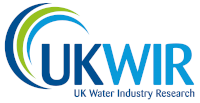New UKWIR research explores FOG-based wastewater charging
04/09/2025
New research from UK Water Industry Research (UKWIR) directly addresses a persistent challenge to wastewater infrastructure resilience and investigates whether wastewater charges for foodservice businesses should more accurately reflect the Fats, Oils, and Grease (FOG) content of their discharges.
In recognition of the urgent need for a more effective approach to FOG management, UKWIR initiated the research project titled, "FOG charging – should foodservice wastewater charges reflect FOG content?".
This pioneering work explores the viability of a FOG-based charging system, aiming to incentivise improved FOG management practices at the source, reduce costly sewer blockages, and create a more equitable financial burden for maintaining vital wastewater infrastructure.
A fatty issue
FOG accumulation is a primary contributor to sewer blockages, necessitating extensive and expensive cleanup operations, increasing the risk of environmental pollution, and potentially leading to property flooding.
According to industry body Water UK, FOG contributes to thousands of sewer blockages each year, which costs the UK nearly £200 million a year to clear. The primary source is commercial and residential kitchens, with around 70% of sewer blockages caused by FOG.
Despite existing legislation requiring businesses to prevent waste from blocking the sewer network, a staggering 69% of Food Service Establishments (FSEs) currently have no FOG management system in place. In addition, over a fifth of these businesses are unaware of FOG remediation techniques.
"The challenges posed by FOG are substantial and understanding if a FOG-specific charging mechanism can drive positive behavioural change and reduce network issues is a critical piece of research for us,” explains Alison Edwards, drainage and wastewater manager at Welsh Water, who is co-progamme lead alongside Nick Mills, research & development lead at Southern Water.
The future of FOG charging
Under Section 111 of the Water Industry Act 1991, businesses are required by law to ensure their waste does not block or damage the sewer network. By more accurately attributing costs to those responsible for FOG discharges, UKWIR argues it encourages fairer cost recovery for water companies grappling with substantial operational expenditures linked to FOG-related blockages and environmental compliance incidents.
Alison Edwards explains, “This isn't just about compliance; it's about supporting businesses to mitigate costly operational disruptions, protect their brand reputation, and contribute to a healthier water environment.
“By exploring FOG-specific charges, we aim to establish a framework that helps businesses streamline their FOG management, ultimately contributing to a more sustainable and cost-effective operation.”
Isle Utilities was the contractor for this project and UKWIR’s Project Manager was Phil Reaney. The Project Steering Group comprised representatives from all 18 UK & Irish water companies.
